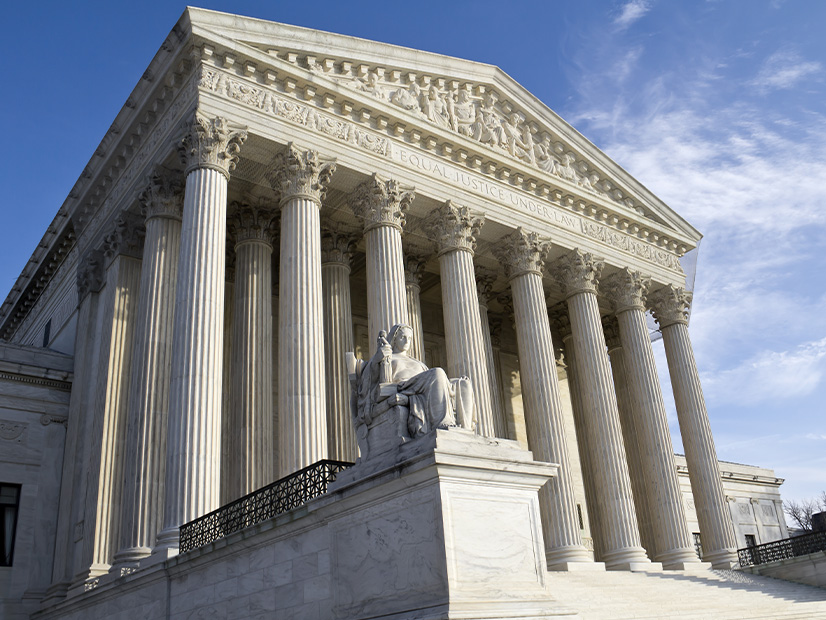
Solicitor General Elizabeth Prelogar has urged the Supreme Court to dismiss a petition to review a 2022 appeals court ruling that found Texas’ right-of-first-refusal law violates the Constitution’s dormant Commerce Clause.
Prelogar filed a brief with the high court Oct. 23 asking it to deny Texas’ request for a writ of certiorari, a formal request to review a lower court’s judgment against the petitioning party (No. 22-601).
At issue is the 5th Circuit Court of Appeals’ ruling last year that the Texas law (Senate Bill 1938) giving incumbent transmission companies the right of first refusal (ROFR) to build new power lines within the state is unconstitutional. Texas, with former Public Utility Commission Chair Peter Lake as the lead petitioner, requested the review in December. (See Texas Petitions SCOTUS to Review ROFR Ruling.)
“The court of appeals correctly determined that SB 1938 discriminates against interstate commerce by prohibiting any company without an existing in-state presence from competing in the market for the construction and operation of electric transmission facilities that would be part of the interstate transmission grid,” Prelogar said in her filing.
She said the Texas law “discriminates on its face against interstate commerce” and that the state’s “contrary arguments lack merit.” Prelogar also noted that FERC Order 2023, which would overhaul transmission planning, would render moot a review of the 5th Circuit decision.
“If FERC were to adopt the proposed rule (or some alternative) while this case was pending before the court, that development might require supplemental briefing or otherwise complicate this court’s consideration,” she wrote.
Consumer advocacy group Electricity Transmission Competition Coalition welcomed the solicitor general’s filing.
“ROFR laws are not just unaffordable, they are unconstitutional,” the organization’s chair, Paul Cicio, said in an emailed statement. “Texas’ ROFR law was unconstitutional from the outset, and this was affirmed by the [appeals court]. Electricity transmission competition benefits consumers in the form of lower electricity prices; the filing of the United States is a welcome addition to the cause of lower electricity prices.”
Chris Reeder, a partner with Husch Blackwell in Austin, told RTO Insider that the Supreme Court’s request for the solicitor general to provide its opinion “indicates the court views the legal issues as having significant constitutional implications on which the government should weigh in.”
The opinion also means briefing on Texas’ request has been completed, he said. The justices will vote on whether to grant review and, if they do, the case will be set for argument and additional briefing requested.
“If it declines review, then the Supreme Court proceeding is over as a practical matter,” Reeder said. “The 5th Circuit’s ruling would become the ‘law of the case.’”
Texas could seek a rehearing of the denial, but those rehearing requests are almost never granted, Reeder said.
The appeals court’s order remands the proceeding back to the district court. (See 5th Circuit Finds in Favor of NextEra’s ROFR Appeal.)
NextEra Energy brought an appeal to the 5th Circuit after the U.S. District Court for Western Texas rejected the utility’s challenge of SB 1938. The district court ruled the legislation didn’t discriminate against interstate commerce because it “regulates only the construction and operation of transmission lines and facilities within Texas.”
At the time, NextEra had been awarded a pair of competitive projects by MISO and SPP in Texas’ non-ERCOT regions. Both projects have since been cancelled, but NextEra has said it intends to pursue other projects in Texas.



